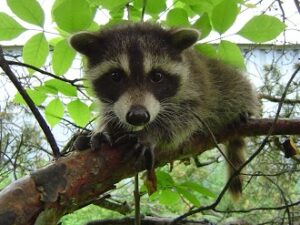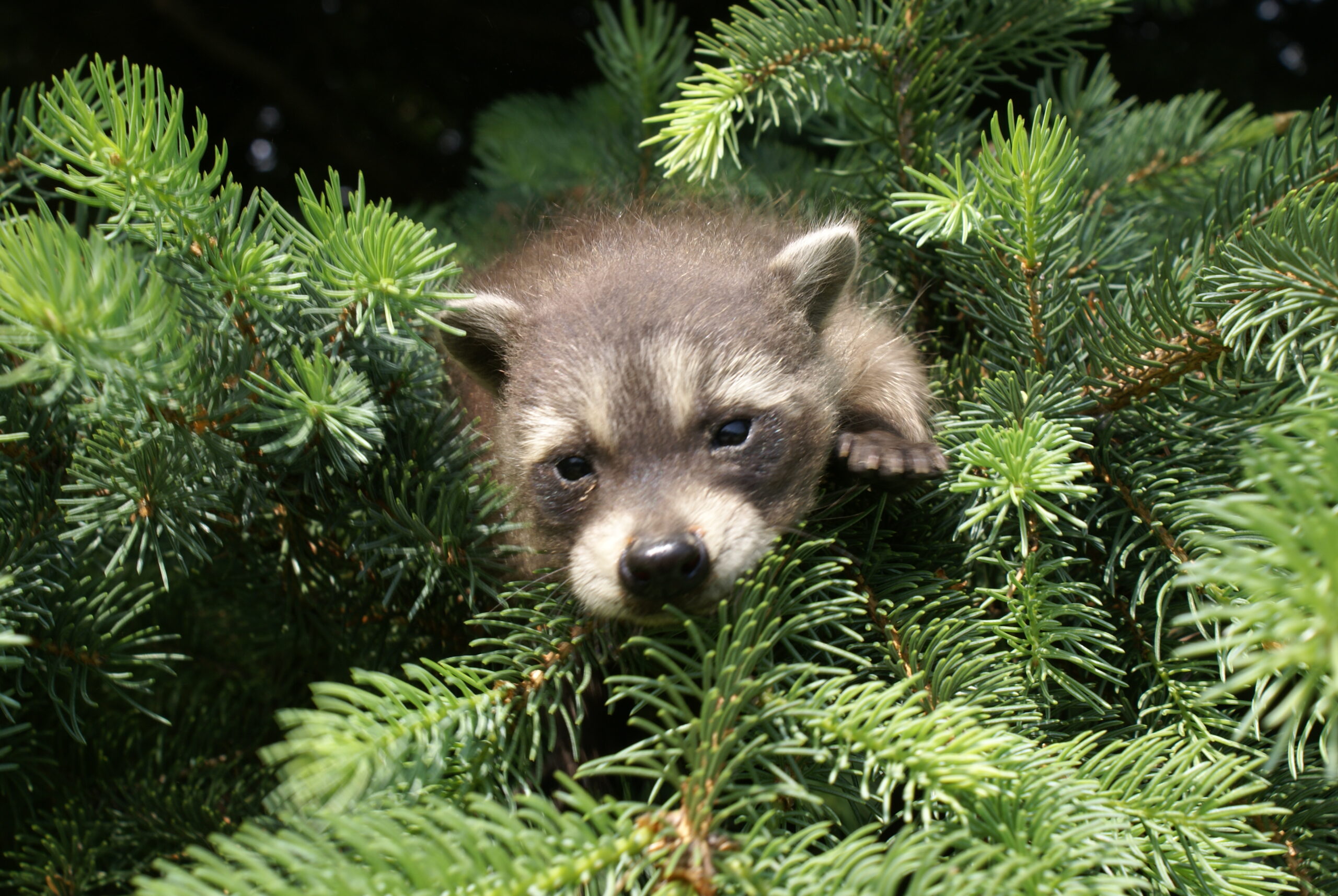Raccoons do not make good tenants. They can make a mess of your garbage, cause extensive damage to your home, and potentially expose your family and pets to dangerous diseases. If the furry bandits enter your home, you should be quick to contact our Skedaddle Milwaukee raccoon removal team. But what if the raccoons are taking up residence in your trees? Is that even possible, and is it as much of a concern as if they got into the house?
Raccoons on your property can pose a health and safety hazard even if they do not make it inside. Read on to learn what you need to know about raccoons living in trees around your home.
Do Raccoons Live in Trees?
It depends. Raccoons are very adept climbers and have many reasons for climbing trees. They may rest in the branches temporarily and keep a lookout for prey. However, raccoons do not make long-term homes in the branches of trees. A hollow in the tree trunk, on the other hand, provides a superb place for a raccoon to make its den. It shelters the raccoon and its family from inclement weather conditions, and also provides protection from predators. These animals may sometimes dig dens at the base of trees as well.
How Can You Tell If Your Trees Have Raccoons?
If you happen to notice a raccoon climbing a tree on your property, that may be a sign that it has made a den there, especially if it seems to disappear before it reaches the branches. With that said, raccoons are mostly active at night, and sighting them during the day is rare. Even if you do not see them, though, raccoons may still leave behind other signs of their presence. Their sharp claws often make scratches on the bark of the tree as they climb. Such marks indicate that you might have raccoons on your property.

Raccoons do not dirty their dens with excrement. Rather, they find alternative sites to defecate called raccoon latrines. You may find these around your trees or in other outdoor areas, such as on your patio or deck. You may also find them indoors in areas such as garages or attics. Raccoon scat is recognizable by its pungent odor and dark, tubular appearance.
Why Are Raccoons in Your Trees a Problem?
Even if the raccoons stay in their dens during the day and do not bother you, having them on your property can still cause you problems. Their excrement may contain dangerous parasites, such as giardia or roundworms. If young children or pets get into a raccoon latrine, they can contract the parasites and become sick. Having raccoons living on your property means that they will not go any further than necessary to find food. If you put your garbage cans out at night, they may open them up and make a mess as they forage for a meal.
If your trees have branches that extend over your roof, raccoons can use them as a way to climb onto your house and crawl into the attic. Once there, they can cause extensive damage, such as accessing a den site by chewing through electrical wires. This poses a fire danger that could potentially destroy your home. Additionally, raccoons can cause a great disturbance while you are trying to sleep during their nocturnal activities.
What Should You Do About Raccoons on Your Property?
You should never try to remove the raccoons by yourself. They are notorious for carrying rabies, and it is often difficult to tell a diseased raccoon from a healthy one. Therefore, amateur handling of them poses a serious potential health risk.
Not only do our Skedaddle Wildlife technicians in Milwaukee remove the raccoons from the property without harming them, but we also clean up any areas of contamination and close off any entry points to your home. Find out more about our raccoon services.



